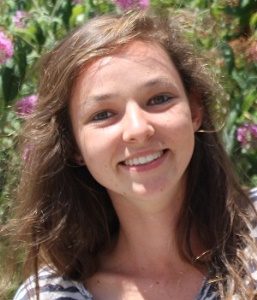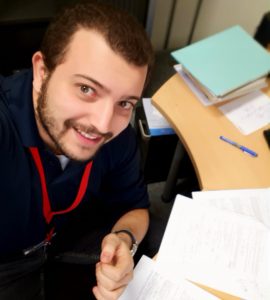Events in October 2018
-
PhD Seminars Special Edition
PhD Seminars Special Edition
–
October 1, 2018Talk 1
Emil Salagean - Software developer & senior technical interviewer
Title
Debugging the technical interview
Abstract
What does it mean, for a company, to have consistent, predictive and accurate interviews? How do I prepare, as a candidate, for my technical interview? This talk, facilitated by Karat.io, throws a glance at the technical interview from both sides of the table: the interviewer's perspective and the candidate's perspective. We'll dig into how to best conduct technical interviews and how to best perform to the coding interview as a candidate.
Talk 2
Speaker

PhD Seminars OrganisersTitle
Already 3 years of PhD Seminars -
PhD Seminars I
PhD Seminars I
–
October 17, 2018Talk 1
Lucie Chambon (BIOCORE)
Title
A new qualitative control strategy for the genetic Toggle Switch.
Abstract
Positive feedback loops, such as the "Toggle Switch", are recurrent building blocks of gene regulatory networks. They are known to be essential for cell differentiation and cell decision making. In a mathematical formalism, they are classically described with a two-dimensional smooth non-linear differential system. The bistability of this classical model captures the decision properties of these biological motifs. This talk presents a new control strategy based on the measurement and control of a unique gene within the loop, in order to stabilize the system around its unstable fixed point. The quantized nature of genetic measurements and the new synthetic control approaches available in biology encourage the use of a piecewise constant control law. Interestingly, this approach may lead to a cell dedifferentiation process.
Talk 2
Speaker
Title
On a mean-field model of interacting neuronsAbstract
How to understand macroscopic phenomena in the brain - such as the emergence of oscillatory activity - using models at the scale of the neurons?
I will present a simple mathematical model of neurons. It consists of N neurons modeled by the time evolution of their membrane potential.
The dynamic of each neuron is not deterministic: each neuron can emit a spike with a probability which depends on its membrane potential.
This spike induces a jump in the membrane potential of the post-synaptic neurons connected with the spiking neuron.
I will discuss the mathematical tools needed to study the model. Emphasis will be given on how this model can capture collective effects such as oscillations of the mean activity. Numerical simulations will be presented to illustrate the theoretical results. -
PhD Seminars II
PhD Seminars II
–
October 29, 2018Talk 1
Walid Djema (BIOCORE)
Title
Understanding some biological phenomena from control and mathematical biology standpoints: analysis aspects of cell population dynamics and optimisation of stains selection in photobioreactors.
Abstract
In the first part of this talk, we introduce some interesting biological mechanisms, like hematopoiesis, which is the process of blood cell formation and continuous replenishment of all hematopoietic cells. Our main objective is to show how can mathematical modeling and analysis tools be used in order to better understand some biological phenomena, including cancer. For that purpose, we revisit some models of the cell cycle and cell proliferation in living organisms. Next, we investigate some basic properties of the resulting models, including stability and stabilization features. In the second phase, we introduce an optimal control problem associated to a model of microalgae growth. Then, we illustrate the efficiency of optimization tools in order to control the biological system and select some microalgae stains according to some useful biological/ecological criteria.
Talk 2
Speaker
Title
Blood flow simulation in stenosed coronary arteries: Fractional flow reserve computation.Abstract
Blood flow simulation can provide an efficient tool to clinicians in the phase of diagnosis. Accurate characterization of the blood flow and pressure into the arteries helps to identify ischemia caused by stenosis, or to quantify the severity of a lesion through the fractional flow reserve (FFR) measure. In this view, we introduce the FFR and give a preliminary 2D results of the flow based on a Non-Newtonian model, carried with simplified geometries in a first approach. Next, we consider a patient-specific stenotic left coronary artery, extracted from a 2D angiography. In this case, adapted boundary conditions were prescribed. The values of the coronary pressure are used to estimate the fractional flow reserve (FFR) distal to the lesion.










